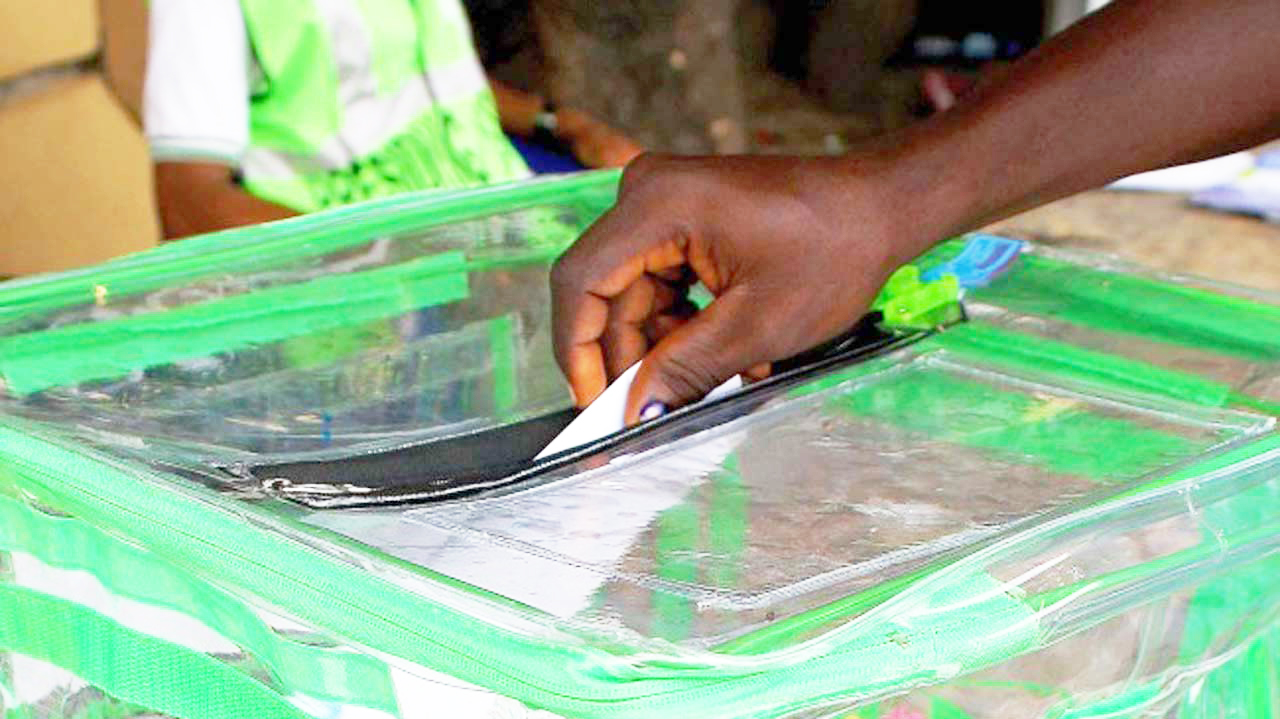
Kallon expressed his worry in a statement released by Head of Communication, Samantha Newport, in Maiduguri yesterday.
He disclosed that the December 26, 2018 clash between troops and the Islamist sect in Baga town triggered massive displacement of people. “The impact of the recent fighting on innocent civilians is devastating and has created a humanitarian tragedy,” he said.
He noted also that the recent attack on Monguno displaced over 58, 000 people. “It is heart-wrenching to see so many of these people living in congested camps or sleeping outside with no shelter,” he said.
Kallon revealed that about 260 aid workers have been withdrawn from three local government areas of Monguno, Kala/Balge and Kukawa.
Regretting that the fighting was hampering the delivery of assistance to hundreds of thousands, he stressed: “This is the largest withdrawal of aid workers since international humanitarian response was scaled up in 2016.”
This came as the Independent National Electoral Commission (INEC) called for a new approach to the deployment of security personnel for the 2019 general elections.
The commission’s chairman, Prof. Mahmood Yakubu, made the appeal yesterday at the quarterly consultative meeting of the Inter-Agency Consultative Committee on Election Security (ICCES).
He said with the experience gained during some of the 195 off-season elections conducted since 2015, it was necessary to draw attention to the need for a different approach to the deployment of security forces during elections.
“The Nigeria Police Force remains the lead agency for election security. Other security agencies will play a supportive role to the Nigeria Police. However, we need a new security architecture for 2019 consistent with the provision of Section 29 (3) of the Electoral Act 2010 (as amended) which provides as follows:
“Notwithstanding the provisions of any other law and for purposes of securing the vote, the commission shall be responsible for requesting for the deployment of relevant security personnel necessary for elections or registration of voters and shall assign them in a manner to be determined by the commission in consultation with the relevant security agencies, provided that the commission shall only request for the deployment of the Nigerian Armed Forces only for the purposes of securing the distribution and delivery of election materials and protection of election officials,” Yakubu said.
He stated that the meeting would discuss modalities for actualising the provision of the law. According to him, INEC is committed to ensuring that elections are organised in a manner that security agencies “are not perceived to be running a parallel arrangement with INEC. Rather, it should strictly be INEC’s plan for the election that should be implemented’.”
He said the meeting would update members of ICCES on INEC’s preparations for the elections and was also an opportunity to hear from the agencies on their preparations so far.
The chairman further appreciated the collaboration between security agencies, saying this facilitated the smooth conduct of the Continuous Voter Registration (CVR) over a 16-month period.
He disclosed that the exercise would start again immediately after the elections.
The National Security Adviser (NSA), Maj. Gen. Mohammed Monguno (represented by Mr. Idowu Owohunwa) said his office was ready to provide leadership and coordination to security agencies towards a credible exercise.
At the meeting were heads and representatives of various security agencies including military and paramilitary outfits.
Also, security chiefs in Taraba State reiterated their readiness to protect life and property during the elections.
The chiefs, who were part of a stakeholders’ meeting organised by INEC in Jalingo, yesterday agreed to checkmate “any acts of lawlessness.”
Led by the state commissioner of police, David Akinremi, they urged politicians to warn “their wards and supporters to desist from thuggery and play according to the rules.”
Meanwhile, the Governor of Rivers State, Nyesom Wike, has accused INEC and security agencies of working against due process in elections.
He said the failure of President Muhammadu Buhari to sign the amended Electoral Act shows he would not be committed to credible polls.
In a series of tweets by his special adviser on electronic media, Simon Nwakaudu, yesterday, the governor insisted that the electoral umpire and security agencies must sign a peace accord.
He said: “INEC and security agencies should commit themselves to working towards credible polls. They should work as unbiased umpires, ensuring that the Electoral Act is respected at all times and due process followed in the conduct of elections.
“During the rerun elections, INEC connived with the police to deny the people of Rivers East Senatorial District their rightful mandate. Security agencies have played negative roles in overheating the polity in Rivers State. INEC and security agencies should sign a pact to respect the tenets of the Electoral Act. The peace accord is a ceremony. It is a mere public display.
“We don’t have any problem with the All Progressives Congress (APC). We have a problem with security agencies. APC does not exist in Rivers State. It only exists because of the presence of security agencies that aid them.”
[ad unit=2]



